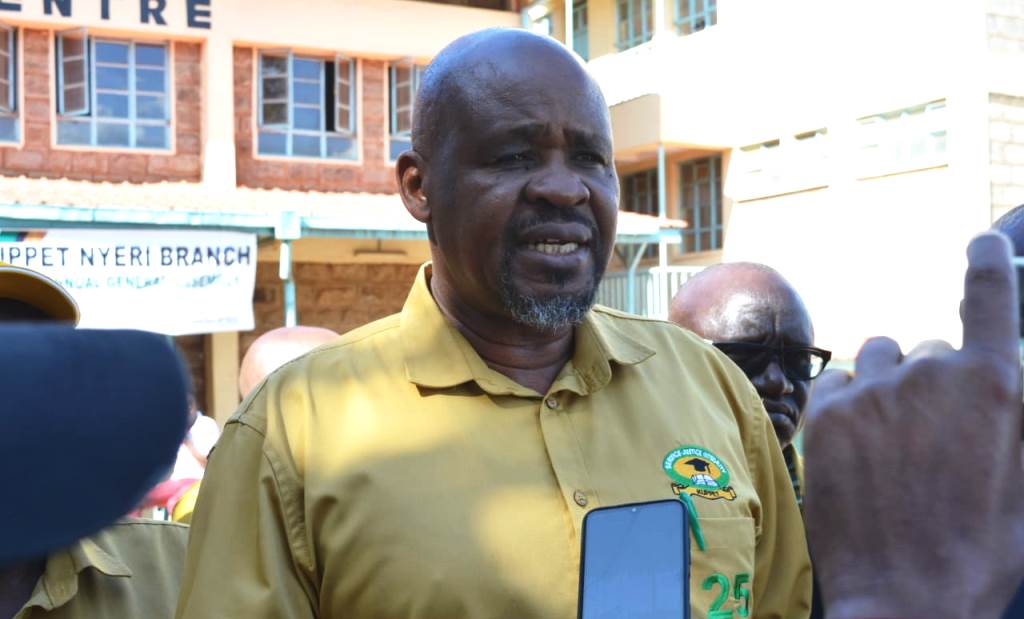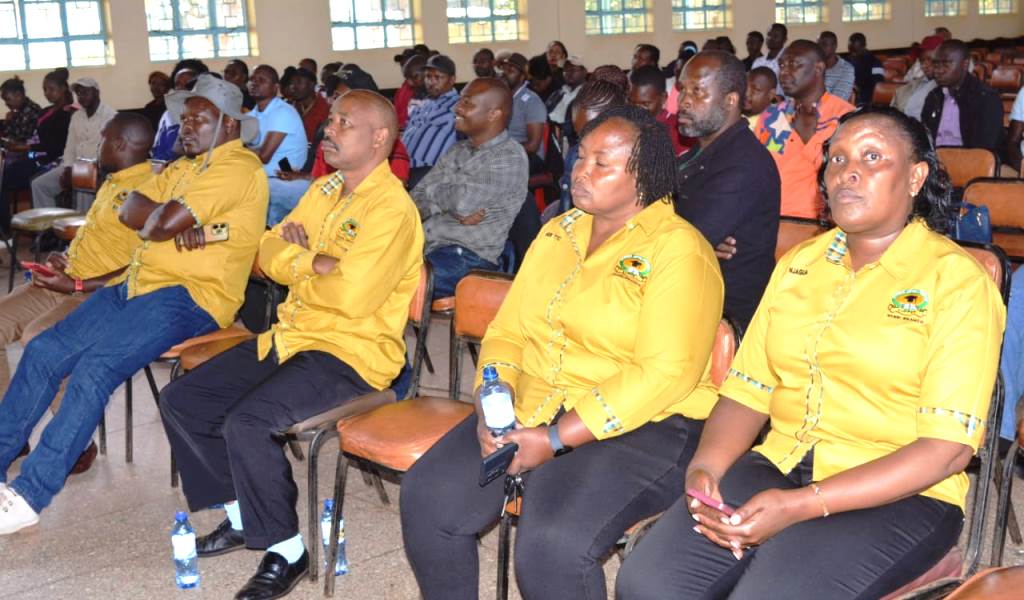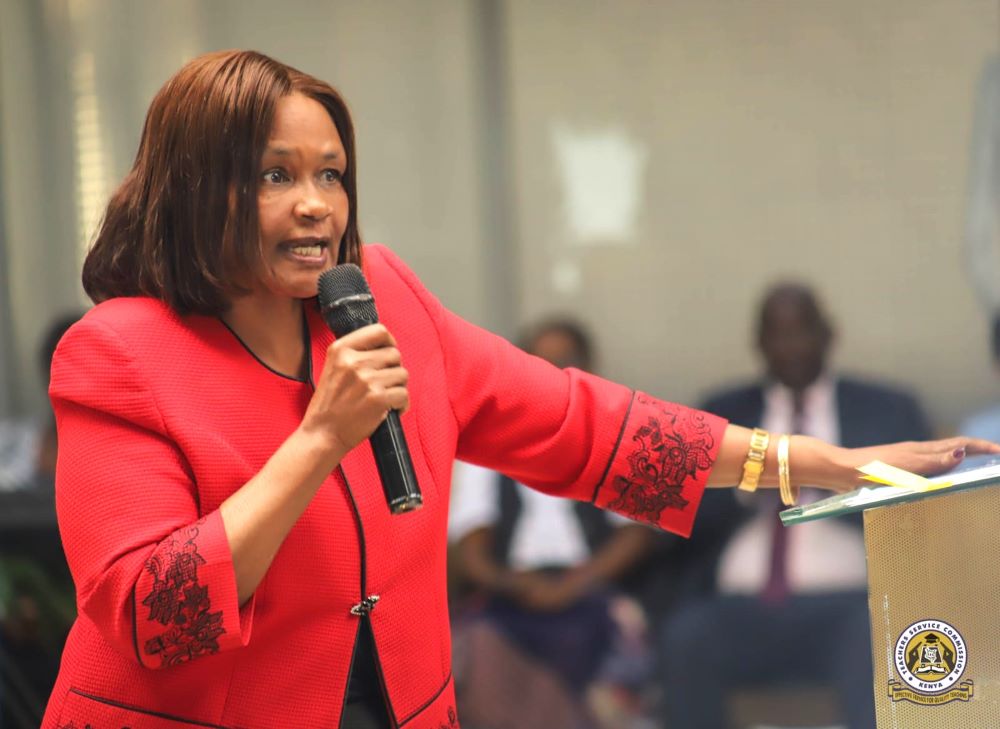The Kenya Union of Post-Primary Education Teachers (KUPPET) has urged Junior Secondary School (JSS) teachers to join their union, asserting that it is the most effective in advocating for their interests.
This comes as some JSS teachers are pushing to form an independent union, separate from the two dominant teachers’ unions – KUPPET and the Kenya National Union of Teachers (KNUT).
Speaking at PCEA Nyamachaki Church in Nyeri during the KUPPET Nyeri branch Annual General Meeting (AGM), KUPPET Deputy Secretary General Moses Nthurima emphasized that their union is the only organization in the country dedicated to defending the rights of post-primary teachers. He said JSS teachers, by their position, should automatically affiliate with union.
“JSS teachers are naturally our members. We are welcoming them home to KUPPET, but we respect freedom of choice. People may decide to join or not to join, but no other union currently caters to post-primary teachers,” he said.

Nthurima advised teachers interested in forming a new union to follow the necessary legal procedures.
“If some JSS teachers want to form their own union, they must meet the legal thresholds to get registered. We cannot have a proliferation of unions, but this does not mean restricting their freedom of association,” he added.
KUPPET’s call for JSS teachers to join their union comes amid concerns over the potential splintering of teachers’ representation, which could weaken the collective voice of educators. As the debate continues, it remains to be seen whether JSS teachers will heed union’s call or pursue an independent path.
Nthurima’s remarks highlight the ongoing conversation around the rights and representation of JSS teachers in Kenya’s evolving education sector, as stakeholders work to ensure that teachers’ voices are heard in the national dialogue.
By Rodgers Wagura
You can also follow our social media pages on Twitter: Education News KE and Facebook: Education News Newspaper for timely updates.
>>> Click here to stay up-to-date with trending regional stories
>>> Click here to read more informed opinions on the country’s education landscape






